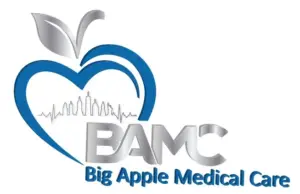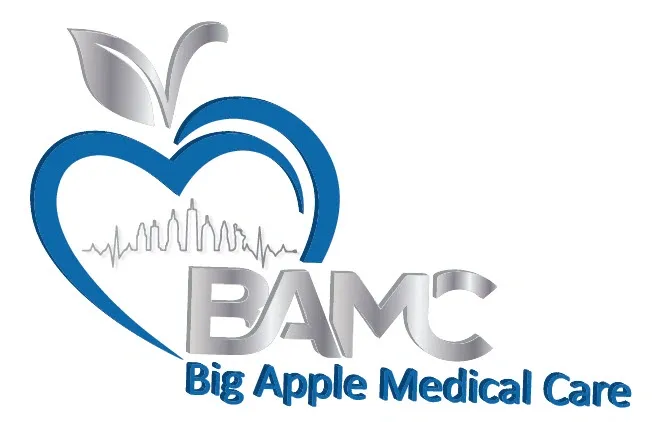Primary Care vs Urgent Care: Understanding the Differences and Knowing When to Seek Each Service

In the ever-evolving landscape of healthcare, navigating the options for medical attention can be a daunting task. Two common choices that often arise are primary care services and urgent care services. While both play a crucial role in maintaining and restoring one’s health, it is essential to understand the distinct differences between the two to ensure you receive the appropriate care when needed.
At Big Apple Medical Care in Brooklyn, New York, we are dedicated to providing comprehensive primary care services that cater to the unique needs of our patients. In this article, we will delve into the intricacies of primary care and urgent care, illuminating the key distinctions and guiding you on when to seek each service.
Primary Care Services: A Comprehensive Approach to Lifelong Health
Primary care services are the foundation of healthcare, providing personalized and continuous care for individuals throughout their lives. These services are typically provided by a primary care physician, such as a family medicine doctor or an internal medicine specialist, who serves as the primary point of contact for your medical needs.
Preventive Care and Wellness: Primary care physicians focus on preventive care, which involves regular check-ups, screenings, and immunizations to detect and prevent potential health issues before they arise. They work collaboratively with patients to develop personalized wellness plans that address lifestyle factors, such as diet, exercise, and stress management, to maintain optimal health.
Chronic Disease Management: Primary care providers play a crucial role in the management of chronic conditions, such as diabetes, hypertension, and heart disease. They work closely with patients to develop comprehensive treatment plans, monitor progress, and make adjustments as needed to ensure the best possible outcomes.
Personalized and Continuous Care: One of the hallmarks of primary care is the emphasis on establishing long-term relationships with patients. Primary care physicians take the time to understand the unique medical history, needs, and preferences of each individual, enabling them to provide personalized and continuous care throughout a patient’s lifetime.
Coordination of Care: Primary care providers serve as the central hub for a patient’s healthcare, coordinating with specialists, diagnostic facilities, and other healthcare providers to ensure seamless and integrated care. They act as the primary point of contact, facilitating communication and ensuring that all aspects of a patient’s health are addressed.
Holistic Approach: Primary care services embrace a holistic approach to healthcare, recognizing the interconnectedness of physical, mental, and emotional well-being. Primary care physicians are equipped to address a wide range of medical concerns, from routine check-ups to complex chronic conditions, while also providing support for mental health and emotional wellness.
Urgent Care Services: Addressing Immediate Medical Needs
Urgent care services, on the other hand, are designed to provide prompt medical attention for non-life-threatening illnesses or injuries that require immediate care but are not severe enough to warrant a trip to the emergency room.
Acute Illness and Injury Treatment: Urgent care centers are equipped to handle a variety of acute medical conditions, such as minor cuts, sprains, flu symptoms, and respiratory infections. These facilities offer expedited care, allowing patients to receive timely treatment without the lengthy wait times often associated with emergency rooms.
Convenience and Accessibility: Urgent care centers are typically more accessible than traditional primary care offices, with extended operating hours, including evenings and weekends, and convenient locations throughout the community. This makes them a suitable option for individuals who need prompt medical attention outside of their primary care provider’s regular business hours.
Supplementary Care: Urgent care services are not intended to replace primary care. Instead, they are designed to supplement and support the ongoing care provided by a patient’s primary care physician. Urgent care centers can assist with addressing acute, episodic medical needs, while primary care providers focus on comprehensive, long-term healthcare management.
Limited Scope: While urgent care centers can handle a wide range of minor medical issues, they are not equipped to provide the same level of comprehensive and continuous care as primary care providers. Urgent care services are typically limited in their ability to manage complex or chronic conditions, which are better suited for primary care.
Referrals and Follow-up: When a patient visits an urgent care center, the staff may recommend follow-up care with a primary care provider or a specialist, depending on the nature of the medical concern. This ensures that any ongoing or underlying issues are properly addressed and that the patient receives the appropriate level of care.
Choosing the Right Care: When to Seek Primary Care vs. Urgent Care
Determining whether to seek primary care or urgent care services can be influenced by various factors, such as the nature of the medical concern, the availability of your primary care provider, and the severity of the condition.
Primary Care Services:
- Routine check-ups and preventive care
- Management of chronic conditions (e.g., diabetes, hypertension)
- Ongoing treatment for long-term health issues
- Comprehensive care for physical and mental health concerns
- Coordination of care with specialists and other healthcare providers
Urgent Care Services:
- Sudden or unexpected injuries (e.g., sprains, minor cuts, burns)
- Acute illnesses (e.g., flu, sinus infections, respiratory issues)
- Minor medical concerns that require prompt attention but are not life-threatening
- Situations where your primary care provider is unavailable or unable to see you immediately
It’s important to note that if you are experiencing a true medical emergency, such as severe chest pain, uncontrolled bleeding, or a life-threatening condition, you should always call 911 or go to the nearest emergency room immediately. Urgent care centers are not equipped to handle these types of critical situations.
At Big Apple Medical Care, we understand the importance of having access to both primary care and urgent care services to ensure the overall well-being of our patients. Our dedicated team of healthcare professionals is committed to providing personalized, comprehensive, and compassionate care tailored to your individual needs.







